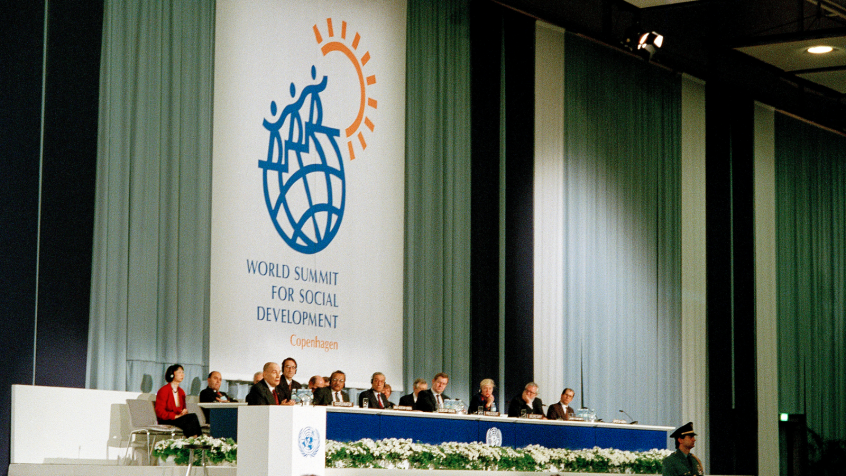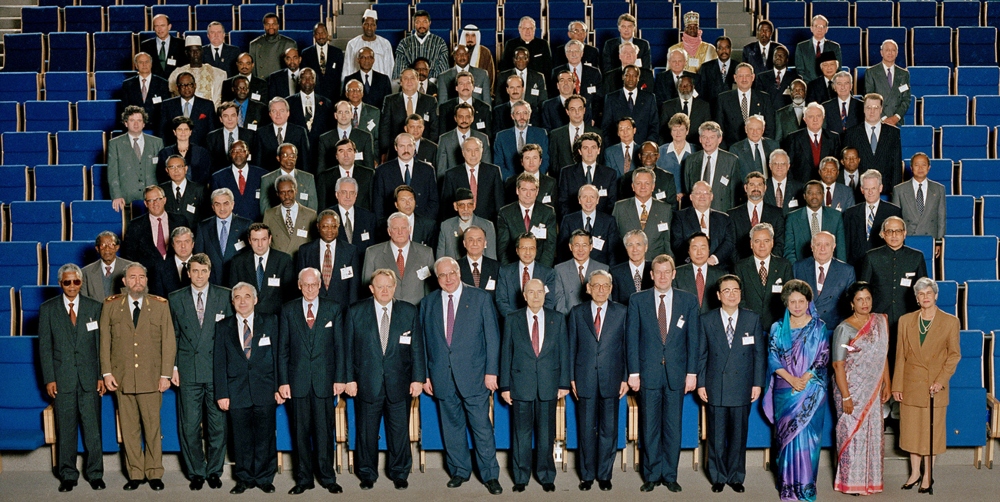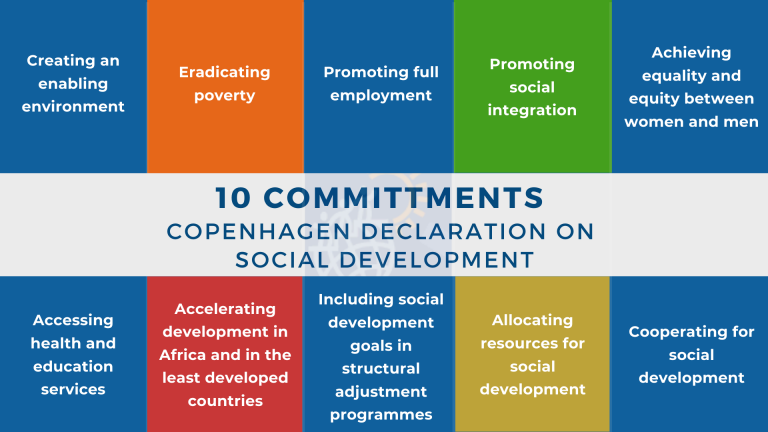
Final Report of the World Summit for Social Development (also includes the Copenhagen Declaration and Programme of Action), A/CONF.166/9: You can view this report in any of the following languages: English | Français | Español | Русский | عربي | 汉语

A historic summit The World Summit for Social Development (WSSD) was, at its time, the largest gathering of world leaders ever assembled. It was attended by more than 14,000 people, include delegates from 186 countries, with 117 represented at the level of Heads of State or Government. At the Summit, Governments pledged to make the conquest of poverty, the goal of full employment and the fostering of social integration overriding objectives of development. At the conclusion of the Summit, Governments adopted a Declaration and Programme of Action which represented a new consensus on the need to put people at the centre of development - in order to advance social development through 10 commitments, including eradicating poverty, reducing inequality and promoting social integration. In the Declaration, Member States agreed to promote international peace and security, accelerate development in Africa and the least developed countries, and mobilize resources for achieving social progress. They presented economic development, social progress and environmental protection as interdependent and components of sustainable development.

The World Summit for Social Development was a historic moment, because the Copenhagen Declaration on Social Development and its Programme of Action have guided multilateral action on social development ever since. The Declaration emphasized the eradication of poverty as an ethical, social, political and economic imperative. The Declaration represented a unique consensus on three key objectives of social development, namely, eradicating poverty, promoting full and productive employment, and fostering social inclusion, and set out a holistic approach to achieve them. It recognized that social development cannot be achieved by the social sectors alone, nor through piecemeal initiatives. The approach required an orientation of values, objectives and priorities towards advancing social progress and a better quality of life and well-being for all. It aspired to “place people at the centre of development by ensuring full participation by all”.
 Welcome to the United Nations
Welcome to the United Nations